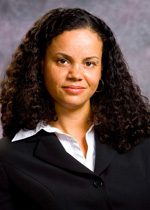
By Leslie A. Gordon
Working for below minimum wage, immigrants may hand over a big hunk of their paychecks to franchise a cleaning business—only to learn there is no such franchise. Other immigrants may be told they owe money to the IRS and that if they don’t provide their Social Security and credit card numbers to what turns out to be predatory third parties, they’ll go to jail or be deported. Similar scams related to transportation (“We’ll bring your belongings to Mexico!”), learning English, debt collection, auto financing, health care, and housing all target vulnerable consumers from other countries.
“These scams are very specific to immigrants,” Evonne Silva explained. She’s a legal fellow at the East Bay Community Law Center (EBCLC), where she launched the Immigrant Consumer Justice Project last September. “Clients often speak limited English, have lower education levels, and are simply trying to navigate the marketplace and pull themselves out of poverty,” she said.
Because many immigrants also lack legal status and have restricted access to conventional forms of credit, they risk losing their life savings, diving deeper into debt, or triggering deportation proceedings by falling for these scams.
To curtail predatory practices, EBCLC has partnered with the Federal Trade Commission to host a conference at Berkeley Law on April 21 that will address immigrant consumer protection. Free and open to the public, Working Together to Advance Protections for Immigrant Consumers will connect legal service providers, law enforcement, and consumer advocates, and explore ways to better collaborate.
In addition to experts from EBCLC and Berkeley Law, representatives from UC Davis School of Law, the California Dept. of Justice, the ACLU’s Immigrant Rights Project, the Food & Drug Administration, the Oakland City Attorney’s Office, U.S. Citizenship and Immigration Services, and private law firms will discuss how to best enforce consumer rights of immigrant communities. Topics will include consumer education, litigation and regulatory solutions, and how to stop the unauthorized practice of law by “notarios,” or non-lawyers who complete critical immigration paperwork for exorbitant fees.
“The conference is a convergence of work that’s already been done and developing needs that have been identified in the community in the last couple of years,” Silva said, an Equal Justice Works fellow. The project she launched fills a “consumer protection gap” in EBCLC’s immigration practice, providing direct legal and social services, community outreach, policy advocacy, and affirmative litigation.

“The project’s an amazing addition to our work at the law center,” said Tirien Steinbach, EBCLC’s executive director, who will give the closing remarks at the conference. “It’s really at the intersection of our work on immigrant rights and consumer rights, and Evonne Silva has been instrumental in growing that holistic practice.”
The Federal Trade Commission, which has been independently addressing deceptive practices and immigrant consumer rights, sought out the input of the EBCLC on these issues, according to Steinbach. “The center is a fairly large provider of free legal services. And it has become a wonderful resource for government agencies and other community-based organizations.”
In fact, the Working Together conference evolved from EBCLC and the FTC “exploring how can we bring people all together, to listen better to what’s happening,” Silva added. “We’ve been collaborating about how to make systemic changes and fill the gaps. The immigrant community may even know the answer or solution to a problem, but they just need a lawyer by their side.”
As many as 65 people—from federal, state and local government, and public interest and private sectors—are expected to attend the conference, Silva said. “We want to build a more secure financial future for immigrants and build power in the communities.”